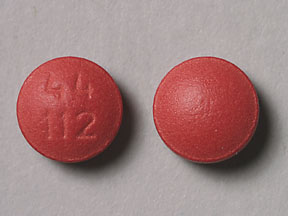
Sudafed Congestion Coupons & Savings Card – Discount Prices from $10.29
Brand for: Pseudoephedrine hcl
My prescription
Edit
30MG, Pseudoephedrine Hcl (30 Tablets)
Select pharmacy

Walgreens
$10.29
COUPON PRICESudafed Congestion savings card
Show this card to your pharmacist
Walgreens
$10.29
BIN
ID
PCN
GRP
019876
LH13395F10
CHIPPO
LHX
Powered by
Sudafed Congestion dosage forms
| Dosage | Quantity | Price from | Per unit |
|---|---|---|---|
| 30MG | 30 Tablets | $2 | $0.07 |
Sudafed Congestion Warnings
This medication contains important safety information regarding potential risks and contraindications. Please read the following warnings carefully and consult your healthcare provider with any concerns.
Heart and Blood Pressure Complications: Sudafed (pseudoephedrine) may increase your heart rate and blood pressure, even when taken as directed. If you have a history of heart disease or high blood pressure, consult your healthcare provider to ensure Sudafed is safe for you. Seek immediate medical attention if you experience severe headaches, nosebleeds, breathing difficulties, irregular heartbeat, or chest pain while taking this medication.
Exacerbation of Existing Conditions: Avoid using Sudafed if you have heart disease, high blood pressure, thyroid issues, diabetes, or urinary problems, unless advised by your provider. This medication can aggravate these conditions and cause severe side effects. Always inform your healthcare provider of your complete medical history before starting Sudafed.
Risk of Overdose: Sudafed is an active ingredient in many over-the-counter products. Taking multiple medications containing a decongestant can result in an accidental overdose, leading to serious side effects such as increased blood pressure, rapid heart rate, breathing issues, dizziness, seizures, hallucinations, or even death. Discuss all current medications with your healthcare provider or pharmacist before starting Sudafed. To avoid accidental overdose, carefully read package labels and consult your pharmacist if unsure whether a product contains a decongestant. In the event of an overdose, seek immediate medical assistance or contact a poison control center at 1-800-222-1222.
Contraindications: Do not use this medication if you are currently taking, or have recently taken (within the last 14 days), a monoamine oxidase inhibitor (MAOI), as this can pose significant health risks. Consult your healthcare provider for guidance in such situations.
Sudafed Congestion Side Effects
When taking this medication, you may experience some mild and common side effects such as nausea, vomiting, trouble sleeping, nervousness, sweating, excitability, low appetite, and mild difficulty urinating. While these are generally mild, if they persist or worsen, it is advisable to consult your healthcare provider for guidance and reassurance.
In some instances, patients have reported additional side effects like dizziness, headache, weakness, muscle tremors, and blurred vision. Although these effects are less common, it is important to monitor how you feel and seek medical advice if these symptoms persist or become bothersome.
There are also rare but serious side effects associated with this medication, which require immediate medical attention. These include fast or irregular heartbeat, high blood pressure, severe dizziness, severe headache, mental or mood changes such as anxiety or confusion, and difficulty breathing. If you notice any signs of a serious allergic reaction, such as rash, itching, swelling of the face, tongue, or throat, or trouble breathing, seek urgent medical care without delay.
Overall, while many individuals do not experience significant side effects, it is crucial to remain vigilant and communicate any concerning symptoms to your healthcare provider.
Sudafed Congestion Interactions
Is Sudafed good for congestion?
Sudafed, which contains the active ingredient pseudoephedrine, is commonly used to relieve nasal congestion. It works by narrowing the blood vessels in the nasal passages, which helps reduce swelling and congestion. However, it is important to use it as directed and be aware of any potential side effects or interactions with other medications. Consulting with a healthcare professional is advisable if there are any concerns or underlying health conditions.
Does Sudafed break up congestion?
Sudafed, which contains the active ingredient pseudoephedrine, is a decongestant. It works by narrowing the blood vessels in the nasal passages, which helps reduce swelling and congestion. However, it does not directly break up mucus; it primarily relieves nasal congestion. For breaking up mucus, an expectorant like guaifenesin may be more appropriate.
Why do doctors tell you not to take Sudafed?
Doctors may advise against taking Sudafed (pseudoephedrine) for several reasons. It can raise blood pressure and heart rate, so it may not be suitable for individuals with hypertension or heart conditions. It can also cause insomnia, nervousness, or dizziness. Additionally, Sudafed can interact with certain medications, such as monoamine oxidase inhibitors (MAOIs), and may not be recommended for individuals with certain medical conditions like hyperthyroidism, diabetes, or glaucoma. It's important for patients to consult with their healthcare provider to determine if Sudafed is safe for their specific health situation.
Should I take Mucinex or Sudafed?
The choice between Mucinex and Sudafed depends on the symptoms being experienced. Mucinex (guaifenesin) is an expectorant that helps loosen mucus in the chest, making it easier to cough up. It is typically used for chest congestion. Sudafed (pseudoephedrine) is a decongestant that relieves nasal congestion by shrinking blood vessels in the nasal passages. It is used for nasal or sinus congestion. If the primary issue is chest congestion, Mucinex may be more appropriate. If nasal congestion is the main concern, Sudafed might be the better choice. It is important to consider any underlying health conditions and consult with a healthcare provider if unsure.
Is it better to take a decongestant or an expectorant?
The choice between a decongestant and an expectorant depends on the symptoms being experienced. A decongestant is more suitable for relieving nasal congestion by reducing swelling in the nasal passages, which is helpful if there is a stuffy nose. An expectorant, on the other hand, helps thin and loosen mucus in the airways, making it easier to cough up, which is beneficial if there is a productive cough with mucus. It is important to consider the specific symptoms and possibly consult a healthcare professional for personalized advice.
